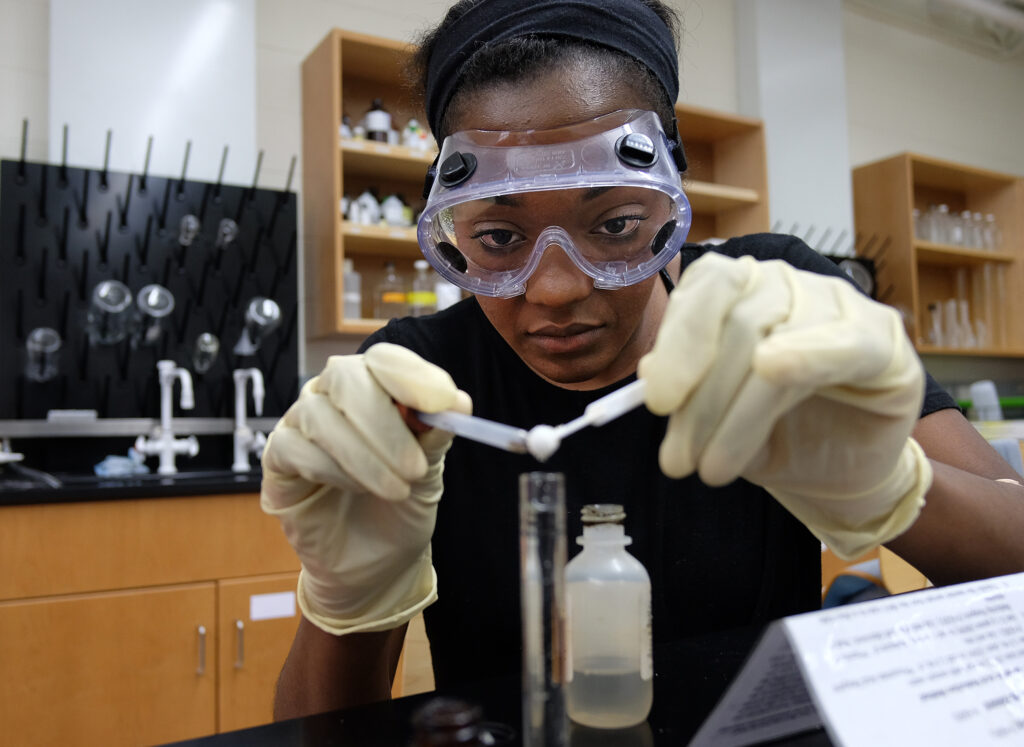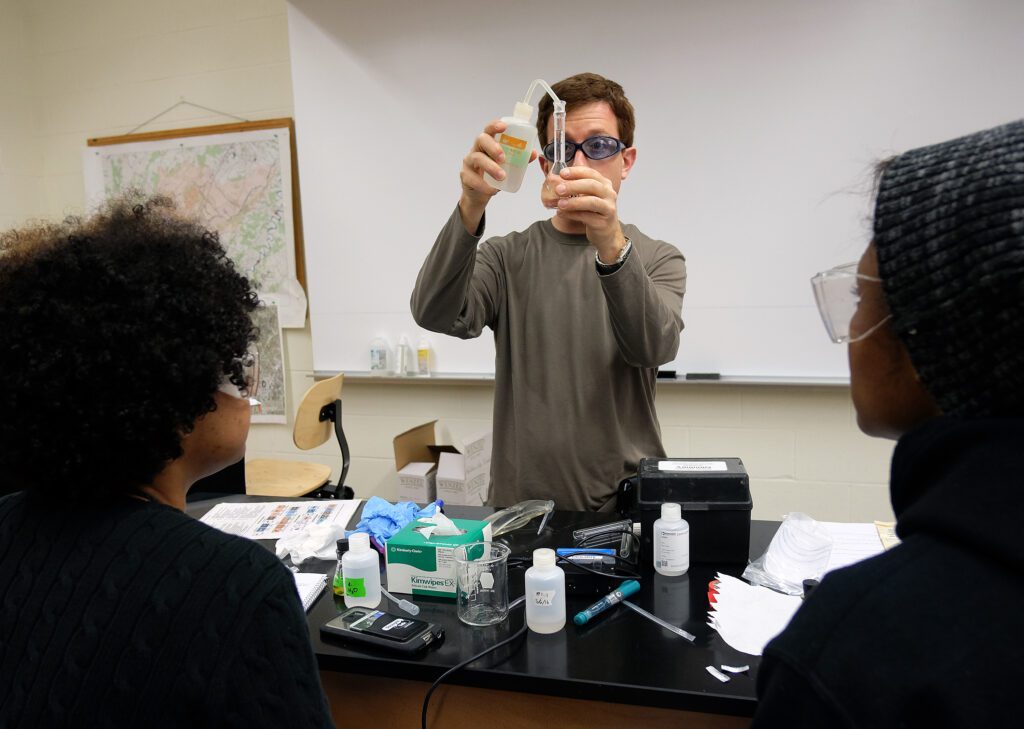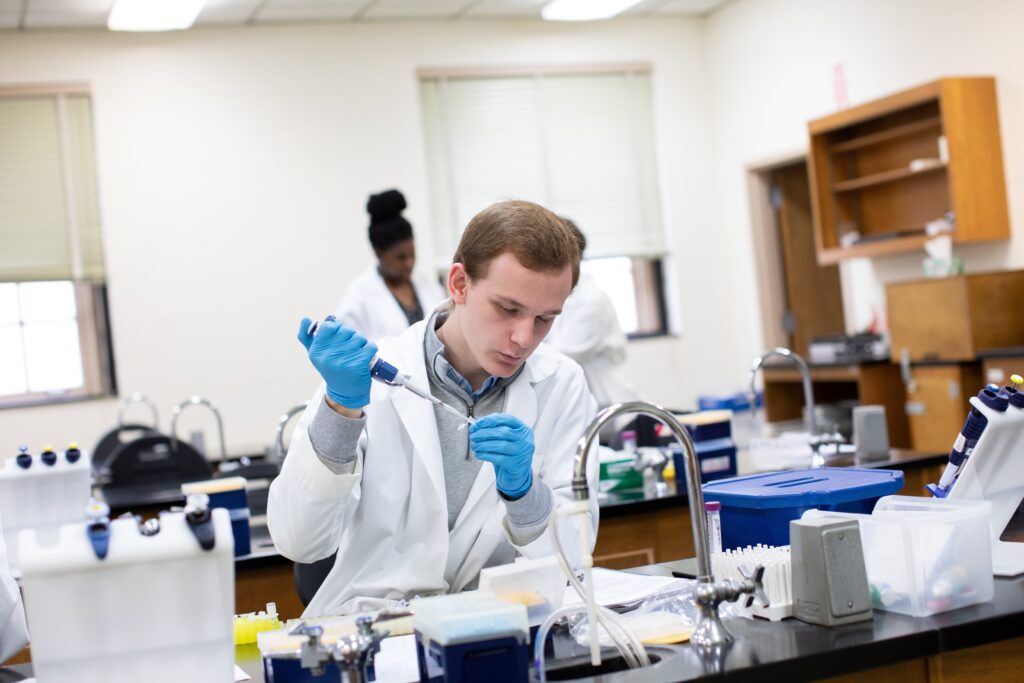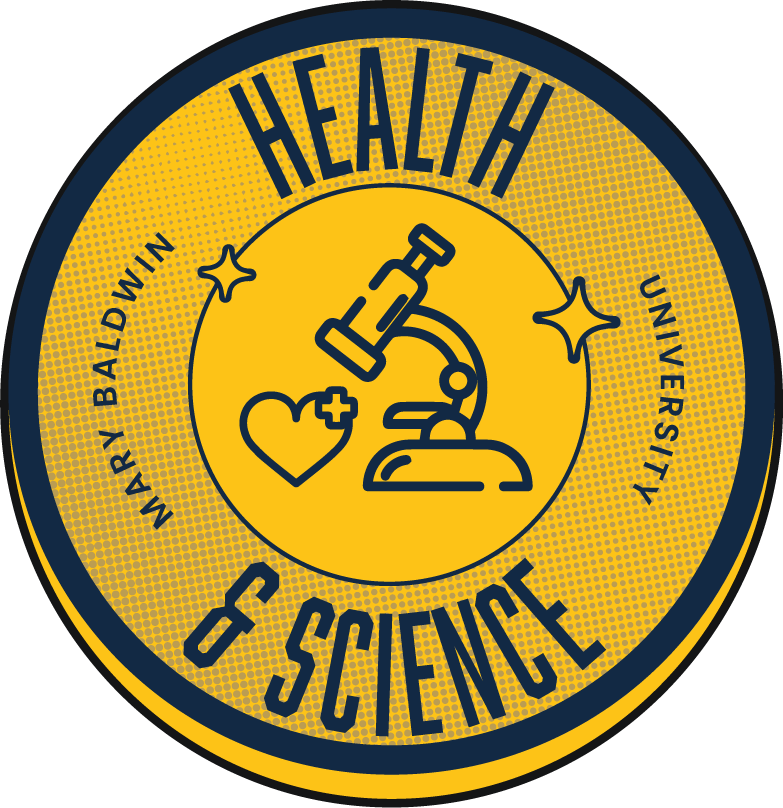Explore life’s complexities at the molecular level.
Both intensely independent and profoundly collaborative, chemistry is a foundational scientific field. In this program, students receive personalized attention and gain real laboratory experience on meaningful research projects. A minor in Chemistry prepares students for rewarding careers in industry, academia, and the public sector. The minor also provides a strong background for pursuing advanced work in medicine, business, and law.
- FormatOn Campus
- Degree(s)Minor
Next steps


Why Minor in Chemistry at Mary Baldwin?
As a chemistry minor at Mary Baldwin, you’ll dive into a challenging curriculum encompassing the organic and inorganic branches of the field. And with access to upper level lab opportunities, our students really learn how chemistry research is done.
Our curriculum and student experiences are constantly adapting to meet evolving industry standards and marketplace needs. Here are some additional ways we prepare you for an exciting career or continued study:
- Learn from caring science educators who give plenty of personal attention
- Participate in Iota Sigma Pi, the national chemistry honor society for women
- Join the Mary Baldwin student chemistry club
Next steps

Minor Requirements
Chemistry minor course requirements include a mix of core and elective courses, most of which have a hands-on lab component.
Required Courses:
A survey of principles appropriate for science majors. Topics include stoichiometry, the main classes of reactions, atomic and molecular structure, thermochemistry, and phase behavior. Lab work builds on classroom discussions and introduces vital techniques. Entering students must have a working knowledge of high school algebra, logarithms, and scientific notation.
A continuation of General Chemistry I. Topics include ionic equilibria, chemical thermodynamics, chemical kinetics, electrochemistry, materials chemistry, the chemistry of main group elements and an introduction to biochemistry. The associated lab elaborates on the material discussed in class and introduces laboratory techniques and the use of modern chemical instrumentation.
Principles, techniques, and instruments used in quantitative chemical analysis. Principles of chemical equilibria, spectrophotometry, electrochemistry, and chromatography. Applications to gravimetric, titrimetric, spectrophotometric, chromatographic, and electrochemical analyses. (Prerequisite: CHEM 122)
Principles, techniques, and instruments used in quantitative chemical analysis. Principles of chemical equilibria, spectrophotometry, electrochemistry, and chromatography. Applications to gravimetric, titrimetric, spectrophotometric, chromatographic, and electrochemical analyses. (Prerequisite: CHEM 122)
Six additional semester hours at the 200 level.
Our Faculty
Our faculty are deeply invested in the academic and professional success of our students. With a passion for teaching, these educators go above and beyond, providing mentorship, personalized guidance, and exciting hands-on research opportunities.

